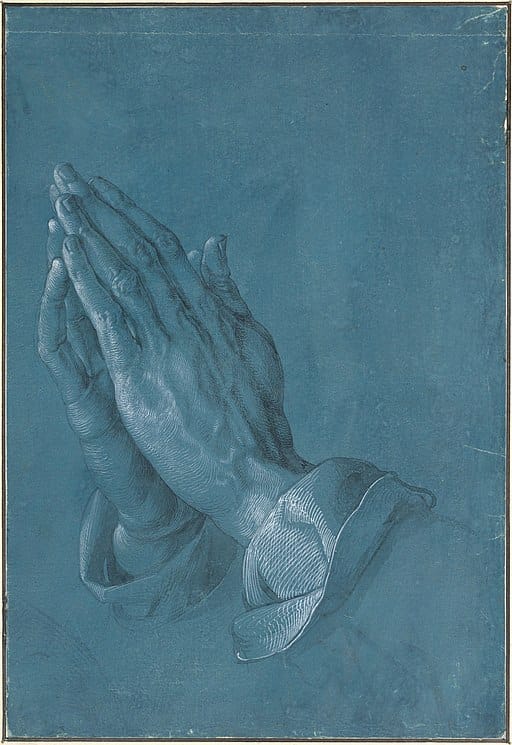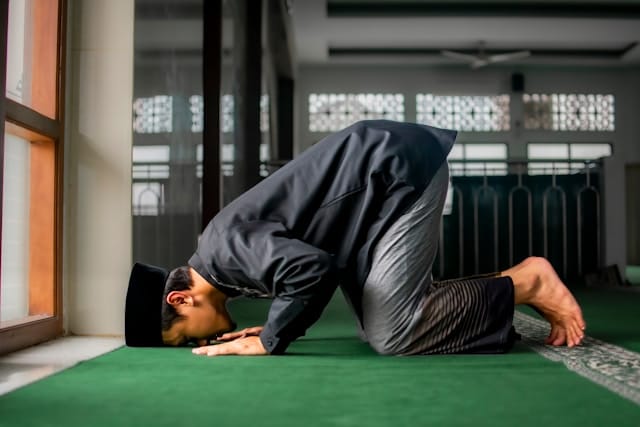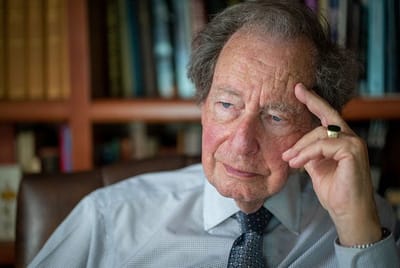Prefatory Remarks
As physical and mental health are primary issues of our time, this article explores the root causes of modern ailments. Can a spiritual connection with health be effective for restoring optimal health? Furthermore can one nourish the heart by caring for the body and mind?
We discuss health on all levels: spiritual, psychological, and physical, all of these domains being connected to the spiritual locus of healing and wholeness, the transcendent “heart.” We shall advocate healing on all these levels through the means of religion, meditation, allopathic medicine, and “alternative”[[1]] healing as well as personal prayer and cultivating a relationship with God. Although the principal concepts can be applied to all traditions, the article mainly approaches healing from the point of view of the Islamic tradition, the one most familiar to the author.
Health and Spirituality
The modern world has estranged man from religion in various ways, leading to disequilibrium on many levels. There are, however, a myriad of ways to heal this rift and thereby approach the heart because spirituality and health are intimately connected. Spiritual practices can heal many unnecessary maladies. In fact, the word “spiritual” includes the obvious word spirit but also, and very importantly, it also contains the word ritual (derived from the Sankrit, rt, denoting harmony or order). Rituals or sacred practices are thus part and parcel of spirituality and health assisting the worshipper to approach the heart better. Health is traditionally understood as wholesome or holy being, and it is related to humanity’s cardial center, the heart, as in the expression “hale and hearty.” Because healing is related to recovering harmony, routine and ritual are intrinsic to health and spirituality.
All great spiritual personages, throughout the ages, have possessed healing functions, including the last of the Semitic prophets.
Truly God and His angels invoke blessings upon the Prophet. O you who believe! Invoke blessings upon him, and greetings of peace! (Q 33:56).[[2]]
At the very outset, we are already in divine company when invoking blessings upon the Prophet Muhammad (peace be upon him) because “God and His angels” do so! Even if one is dying alone in hospital, the promised manifold return blessings confer equilibrium upon the believer for whom the Prophet, in his Logotic sense, is the personification of perfection, and we are engulfed in a returning energy flow of balance through the blessings invoked upon him. Spiritual benefits are not the only gifts of this invocation because one’s physical and mental health also receive the benefits of restored harmony. This is why many believers recite the blessing upon the Prophet (Salāt ‘alā’n-Nabī) along with ingesting medication. The Salāt ‘alā’n-Nabī not only attracts homeostasis for the spirit and soul, but the blessing can also catalyze physiological processes, just as a worthy relationship with God is catalyzed, firstly, by love of the Prophet: Say, “If you love God, follow me [Muhammad], and God will love you and forgive you your sins. And God is Forgiving, Merciful” (Q 3:31). The spiritual allopathy derives from the dependence of the psycho-physical order on the spiritual order which sustains it. The modern pathology is the disconnection of the human from the Divine, and so the remedy is a restoration of that connection which the Holy Invocation initiates.
The prayer to bless the Prophet is certainly pre-answered because we are told in advance that “God and His angels” do so already. All the believer need do, to benefit from the benediction, is to join this privilege, have faith in its power and open ourselves to these exponentially powerful return blessings, which are guaranteed as confirmed by the famous sayings of the Prophet and of other messengers in other faith traditions. The Salāt ‘alā’n-Nabī is accessible to all believers – young and old – it is not a domain for specialists; it is accessible to the entire spectrum of believers. Thus, we propose, that the return blessings of the Salāt ‘alā’n-Nabī not only provides spiritual, but also psychological and physiological equilibrium, given that the Prophet (peace be upon him) has the most lucid mind and healthiest body. All these precious dimensions can return to the believer, including mental hygiene and biological health. There are many sayings of the Prophet (aḥadīth) which advocate healthy living and ban unhealthy substances.
Adaptogens as Complements to Prayer and Blessings

Now, just as the essential Sunnah catalyzes a relationship with God, making it active, so do adaptogens[[3]], amongst nature’s many other remedies, catalyze healing. Have you ever wondered why an illness can linger despite ingesting all the necessary medication? An adaptogen, or combination thereof, along with the Salāt ‘alā’n-Nabī prayer, compensate for what is lacking in the medicinal prescription alone. Herbal medicines and spiritual practices are more powerful in combination than separately.
Regarding the word “catalyze”, catalysts for healing in nature are found amongst adaptogens. Adaptogens facilitate healing by acting on the hormonal system, thus allowing the body and mind to speedily adapt to the healing process. They also balance hormonal activity thus restoring homeostasis[[4]] to counter dis-ease which is usually caused by a dis-equilibrium. Examples of adaptogens are Ginseng, Ashwagandha and Rhodiola, to name the primary ones. These are additionally used to combat stress in the body. These particular adaptogens boast many health properties; however, we would like to focus on their catalytic and homeostatic abilities, thereby linking adaptogens – in the vegetable kingdom – to the prayer injunction described above.
Having a full relationship with the Divine is the foremost step to healing illnesses and approaching the heart. Harmony with God leads to harmony with nature, including its inner dimension present inside our heart. Our inner nature is an integral part of outer nature as a whole. However, this is not an “idealistic” discourse, the other gifts from God such as nature which surrounds us as well as sacred science are also necessary. For example, if a person suffers from a mental disequilibrium, honey and black seeds only, in modern times, will not restore a balance. Other allopathic interventions will likely also be necessary.
It must be admitted that allopathic medicine has made remarkable inroads into unparalleled healing procedures for both the body and mind, especially in psychiatric disciplines, as they can be effective in treating mental illnesses. Of course, allopathic medicines can also have negative side effects, hence the need to complement them where necessary with natural substances, all requiring experienced counsel and guidance. A good nutritionist can assist here. Adaptogens, such as the ones mentioned above, can also help. Generally, most illnesses can be prevented by a healthy lifestyle, with matters of the spirit in place, along with natural self-medication and personal research for the particular individual’s needs. On the one hand, however, if one needs a tooth extracted, a broken bone mended or has other medical emergencies, self-treatment and self-medicating will obviously not work, and one may very well need allopathic solutions. You cannot do-it-yourself at home. Here and in similar areas, allopathic disciplines cannot be disdained. In these cases, a qualified doctor must, therefore, be seen. However, you should take overall personal responsibility for your own health and not hand that over to a doctor in a passive fashion. A doctor can assist you in your journey to health, but you must drive the chariot!
Dr. Ballentine’s Diagnoses
A US-based doctor, Dr. Rudolph Ballentine, has done ground-breaking research in linking illnesses with a patient’s spiritual and mental states.[[5]] Along with medical advice, his groundbreaking research points to interesting causes for common physiological complaints. For example:
- Anxiety: “Not trusting the Universe’s plan”
- Constipation: “Reluctance to let go the residue of the past”
- Depression: “Spirit is trying to move you through a change, and you are resisting”
- Hypoglycemia: “Too dispirited to supply oneself fuel—find your passion!”
- Immune Weakness: “Giving up, self-condemnation”
- Influenza: “Caught up in mass negativity, fears and beliefs”
- Kidney Stones: “Crystals of poisonous thought and feelings”
- Multiple Chemical Sensitivities: “Stuck in the paranoid position. Focus efforts on detox and change of mindset”
- Stroke: “Rather die than change. Rejection of life”
The point is to relate outer symptoms to disjunctions understood in a more radical and holistic way. According to Dr Ballentine, we find that our attitudes to life and our experiences can lead to a myriad of illnesses, and we can heal these by tackling the problem at its root, within ourselves, close to our heart, along with applying other supports. Religion can also provide an edifice for beliefs to counter negative self-talk and conditioning. This is helpful for those who struggle to hold these competing ideas in isolation.
Virtue
Examining health issues in terms of the inner-outer relationship, one can understand the importance of ethical living and ontological virtue. Virtue is a mode of conformity to divine attributes, and derives from the primordially wholesome disposition (fitra) instilled in humanity. Man, as anthropos, is made in the image of God and is thus duty-bound to reflect the Divine nature into creation. Virtue is therefore a corollary of faith, in the same way as Goodness/Beauty are related to Truth in the case of the Platonic transcendentals. Virtue is therefore a mode of harmony with the divine nature. When this harmony is lacking, various dis-harmonies or dis-eases can be the result.
In this light, let us now expand upon Dr Ballentine’s diagnoses cited above:
A lack of trust (tawakkul) – or a loss of faith – can lead to anxiety, especially common amongst our young people. They can be overwhelmed by world events, the ills of social media and they often display severe symptoms of anxiety and nervousness as a consequence. According to Ballentine, the remedy called for, is the virtue of trust (in God). Natural calming medications can also be used. However, for a lasting solution, the person, as a believer, has to come to terms with the fact that, despite appearances, God is in control of the “bigger picture”. Evil is only a fragile shadow and can never overcome the Good. Vincit omnia veritas means truth conquers all things. An anxious person must develop unbreakable faith in this ultimate truth because a seeker must possess trust to enter the sanctuary of the transcendent Spirit, and, at the same time, must avoid any Promethean quest for immortality (as some transhumanists nowadays do).
The Sufis teach adepts to be a “son of the moment” (ibn al-waqt), to live in the present moment (popularized in our times as “The Power of Now”), and to see that the “present” is a gift, freshly bestowed at each instant. The moment of “now” has power so long as it is the transcendent or eternal now (of which William Blake, among others, taught). Merely in formulating this centering Presence, that moment has already become something of the past. We need to seize the moment of “now” ever anew and use it to remember God. “Pray without ceasing,” said St. Paul. At the same time, we must also cultivate the virtue of forgiveness with regard to past traumas. The letting-go is a healing method of non-attachment to the poisons we ingest through perceived pain. One must be resigned to inevitably having some negative personal karma (in Hinduism and Buddhism, it is the sum of a person’s actions in this and previous states of existence, viewed as deciding their fate in the present and future) which can explain many difficulties in life. During childhood, one innocently perceives suffering as being unjust, but later, a thoughtful person may reconcile this with knowledge of karmic residues that needed to be expiated. It must be emphasized that not everything is a matter of karma, there are injustices taking place and we will answer for our willing participation in it.
Islam’s teaching of not limiting the pursuit of knowledge exemplified in the Prophetic saying, “seek knowledge even unto China,” taking us back also to the Buddhist teachings of karma, answers many previously unanswered questions with regard to suffering in unfavorable circumstances. In relation to “reluctance to let go the residue of the past” as quoted above, once one understands karmic causes and its effects, it becomes easier to break the addiction to mental pain and to let it go as “water under the bridge.” This striving for detachment should be accompanied, of course, by a balanced outer lifestyle of good exercise and wholesome diet, with sufficient fiber and hydrating water containing electrolytes. Blaming others for our pain and not taking personal responsibility for our own unhealthy lifestyles are the surest way to remain stuck in an unfavorable situation. We thereby end up giving away our power to heal ourselves and to digest our sufferings.
Analogously, depression may ensue if we do not make an effort to change and move forward, despite past traumas, in harmony with what God wants for our best. Medicinally speaking, Omega-3s and Magnesium L-threonate, for example, can contribute to lifting depression as well as having a host of other benefits.[[6]] While the body needs the correct “chemical” nutrition, the soul needs the appropriate attitude to life. These factors complement each other by providing potency rather than trying merely the one or the other in isolation and, hence, not succeeding in a sustainable manner. Exercise is also a key factor for removing depression; one must move!
During the peak of the COVID-19 pandemic, in their isolation, many people simply gave up their zest for life; they lost their passion. Dr Ballentine links the feeling of being “too dispirited to supply oneself fuel” with hypoglycemia, where the blood sugar is not converted into energy. Another example of a medicinal solution is chromium which is a key ingredient for regulating sugar imbalances. One cannot be deficient in this element and expect sugar levels to be normalized. Maintaining proper chromium levels can be coupled with the endeavor to “find your passion!”
At the same time, when using some medications, it is important to be aware that they can deplete key nutrients such as B12, for example. Low levels of this vitamin can lead to a whole host of other complications. Other medications, even natural herbs included, can lower blood pressure. Thus a good organic multivitamin or superfood is useful to fill the nutritional gaps caused especially by eating too many processed foods. Even the quality of raw food is declining due to climate changes, soil quality, and foods being GMO. Supplementation is highly recommended and, of course, supplements that include adaptogenic properties.
Healthy Body – Healthy Mind
The reverse of the adage Healthy Body – Healthy Mind is also true: Healthy Mind – Healthy Body. Many people focus on physical health and may neglect their mental health. When physical ailments persist, they forget that their state of mind affects the body. This is attested to by the following passages:
Kidney Stones – “Crystals of poisonous thought and feelings”
Multiple Chemical Sensitivities – “Stuck in the paranoid position. Focus efforts on detox and change of mindset” (Ballentine, 1999).
Building on this concept, if one maintains prejudice in any form, it can lead to “poisonous thought and feelings,” patterns which can be rectified, for example, by verses from the Quran such as: O mankind! Truly We created you from a male and a female, and We made you peoples and tribes that you may come to know one another. Surely the most noble of you before God are the most reverent of you. Truly God is Knowing, Aware (Q 49:13). The verse contains important wisdom about the cosmopolitan design of the universe and its corollary of a pluralistic ethic of healing that it entails.
If we focus on racism as an example, we can understand that it can fossilize brain neurons into a fixed pattern. When a racist-thinking person stubbornly adheres to prejudicial-thought patterns, the brain’s growth becomes stunted. The brain is one of the body’s organs that can actually renew itself by growing new neurons. Neurogenesis and neuroplasticity in fact create the basis for objectivity, while prejudice calcifies the mind. Pure truths are thus indispensable because relative truths and bias may carry some danger for the person’s mind as such thoughts can feed impure feelings and eventually affect the body’s health in a negative way. The body’s innate intelligence will reveal these dis-equilibria as dis-ease.
One can actually test just how fossilized our brains have become by examining our habits. For example, if a smartphone app is usually located in a certain place on your phone and is moved elsewhere, the brain will still take one to its previous location, until the brain actually grows a new neuron to tell you that the app has been moved to a new location. Similarly, if one rearranges a room’s furniture and places the bed against a different wall, one will still be inclined, after sleep, to want to climb out of bed on the habitual side, whereas this may now be a wall. The brain’s ability to rewire itself with regard to stimuli – its neuroplasticity – is linked to the mind seeking new knowledge. A famous saying of the Prophet (hadīth) advises to “seek knowledge from the cradle to the grave.” This is another key to a healthy mind filled with unbiased truths rooted in nuance and presence rather than prejudice. When the brain’s neuroplasticity capacity is not fed, cognitive issues such as dementia, loss of memory, personality changes, impaired reasoning, loss of objective judgment, difficulty concentrating, and so forth, can occur.
Suicidal tendencies are often due to the person identifying their whole being with their lowest self. We are made in the image of God: we have a higher spiritual self which is to be celebrated along with its unique fingerprints in our individuality and a unique spirit. We are therefore unique and precious expressions of the Divine. It is not a matter of egoism to realize this! Egoism ensues when we identify with the lower vices and passions exclusively. At some point this becomes unbearable, and the assailed person considers suicide to rid himself of this existential burden. Obviously, one should escape this pathology by moving closer to God in a spiritual sense and not through premature self-inflicted death. Murdering oneself is still murder and a capital offence that can anger God (because we are rejecting not only the precious gift of life but our trust in the Divine) rather than bring down His mercy. Suicide, most certainly, is not a solution to our problems. We may simply face harsher circumstances in the Afterlife.
Physical Benefits of Canonical Prayer and Fasting

Let us point out by way of example two illustrations from Muslim worship which attest to the spiritual and physical benefit of rituals. Firstly, when making the call to prayer (adhān) the caller turns his upper torso to the right and to the left when calling “come to prayer” and “come to success”. This is similar too when the devotee greets the angels on his right and left shoulders at the prayers conclusion. This causes a rotation of spinal ligaments which allows the cerebrospinal fluid (CSF)[[7]] to easily trickle down inside the entire spine, especially when the body is in the vertical posture. This allows for homeostasis to be restored by the clearing of waste.
“CSF allows for the removal of waste products from the brain, and is critical in the brain’s lymphatic system, called the glymphatic system. Metabolic waste products diffuse rapidly into CSF and are removed into the bloodstream as CSF is absorbed. When this system goes awry, CSF can be toxic, such as in amyotrophic lateral sclerosis, the commonest form of motor neuron disease.”[[8]]
The latter condition can also lead to toxic crystals forming and is related to the above stated issue of toxic thoughts leading to bodily toxicity.
Secondly, another example which would apply to all practicing Muslims, is when the body is in prostration (sujūd). The CSF can flow over the topmost region of the brain. This is not easily achieved, when the person is in a vertical position, due to the force of gravity. Blood flow to the brain is also better facilitated, thus providing a medium to absorb the toxic waste produced by the CSF and to expel it, provided no negative thoughts hinder the process. Increased blood flow to the head also increases the blood nourishment of the eustachian tube, lips, mouth, nose, cheeks, face bones, ears, teeth/gums, trifacial nerve, eyes, sinuses, tongue, optic nerves, mastoid bones, auditory nerves, forehead, bones of the face, pituitary gland, and the sympathetic nervous system. By soothing the sympathetic nervous system it activates the parasympathetic nervous system allowing for peace of mind etc. In addition, in the posture of sujūd, the forehead on the ground allows for the “earthing” of the sixth chakra, which in the Hindu tradition is said to be situated between and above the eyebrows. This point which concurs with the prostration point on the forehead actualizes Heaven on earth when placed upon the ground and rids the sixth chakra of electronic signals produced by WiFi and cell phone signals etc., which are all around us. This may explain why many people feel apathetic and lethargic in our digital age.
Additionally, in the ritual prayer in the genuflection (rukū’), when the devotee bows, the abdomen becomes horizontal, and this is followed by standing up straight (qiyām). The upright position is then followed by a prostration (sujūd); and all of these movements allow for a 360 degree stomach wash. All regions of the stomach walls are reached, thus resulting in a complete wash which would not occur if the person never genuflected, prostrated, “fell on his face” to cite the apostle Matthew (26:39), “kneeled down, and prayed” to cite Luke (22:41) or adopted specific yoga postures. One of the best mediums for a proper stomach wash is a combination of water and dates, which is the Prophetic tradition (Sunnah), followed particularly when breaking the Islamic fast.
Fasting, along with prayer, is another great ritual for religious and physical benefit. When the body is detoxified, psychological toxicity no longer has anything to feed on. There are many more dimensions to fasting, a few of which are cited here.
Fasting allows the spirit to be stronger than the body. Spiritual strength can retake its rightful place above a weaker body. Usually, the reverse is what takes place, and we need to periodically restore the correct balance. Fasting is a method of self-purification and also lowers cholesterol[[9]] – the cause of many sudden heart attacks. Periodic fasting purifies various organs, thereby halting complications and diverting the body’s focus from the stomach and gut, giving it a rest! This is very important because it is in the gut where most diseases are believed to originate. Fasting can be understood as a “psycho-spiritual practice” in that it combines bodily purification with mental and soul purification.
Gut Health and Absorbency Rate
To facilitate optimum absorption of nutrients in the gut, the latter needs to be free of parasites and ‘bad’ bacteria. De-worming is not just for children, adults need to do so every 6 months. This can be followed up by a pre- and probiotic treatment. The benefits of fasting are also recalled here.[[10]] Good gut health ensures that healing foods and quality supplements are absorbed into the body. Many consider health supplements to be a waste of money, however, it is rather the individual’s absorbency rate of these nutrients that is at issue. For example, adaptogens were part and parcel of every ancient civilization.
Broadly speaking, the Asians used Ginseng, the Hindus and Africans used Ashwagandha, in icy regions people made use of Rhodiola, and in South America, Maca was the choice etc. Nowadays one cannot easily find these in supermarkets, it is conspicuously missing in the modern sedentary diet. For this reason potentized adaptogens, as supplements, become necessary. This also applies to a number of different nutrients.
For healthy supplements to be effective one also needs to relate it to the ultimate creator of healing nutrients. The passage between the bottle of such and such a nutrient and the God of nature needs to be open. This will ensure that the nutrient will have an effect “with God’s permission” and that the former will not simply be an association (shirk) with God but rather an instrument for healing, God being the primary cause of all healing. It is correct to say, for example, that vitamin C is good for the immune system. It is better to add “with God’s permission” and to take it in God’s Name, with gratitude and salutations upon His Prophet. Take supplements with right conscious intention rather than in a vaguely hopeful fashion. This will improve the absorbency rate of nutrients, enhance their effectiveness and render them food for the soul.
Virtues for Mental and Physical Health
Primordially speaking, the “fear” of God was reflected in humility and being in awe of His Majesty. There is an important distinction to be made here. The fear factor, untethered to the Divine Nature of love, can be very harmful to one’s body: if it is not fear of a pandemic, then it is climate issues or doomsday being around the corner and other such concerns. Now, if one crosses a street, and does not fear being knocked down, then we may tend to be less careful and should thus cultivate a healthy fear of the dangers on the street. “Fear” has its role to play in our lives, but it should not be applied to God by turning Him into a monster Who wants to roast us in Hell for the slightest fault. Without us having temerity, Mercy does always override and Hell is reserved for extreme cases ultimately to purify souls of their faults and still provide them an opportunity for entering Paradise later. Hopefully speaking, ordinary believers who inevitably lapse in life often suffer enough in our world to be expiated and cleansed of shortcomings in this life, God willing. The Quran says: When those who believe in Our signs come to thee, say, “Peace be upon you! Your Lord has prescribed Mercy for Himself, that whosoever among you does evil in ignorance and thereafter repents and makes amends, He is truly Forgiving, Merciful.” Thus do We expound the signs, that the way of the guilty may be made clear (6:54-55).
It has been shown that putting the fear of Hell into children under the age of 7 years can be particularly damaging and traumatizing. Children should rather be taught that God’s Mercy is infinite but that there are also consequences for actions. Portraying God as a being with a blowtorch ready to torture His creation for the slightest fault is clearly unbalanced and often the reason why many eventually seek to turn away from religion or abandon the way its so-called representatives portray it. In a sense, it is better to have sins and be humbled by our lapses than to be self-righteously observant and become pharisaically arrogant. The fear of God has its place and can be introduced to a child over 7 years of age and enforced upon adolescents answerable for their own actions.
Gratitude
It is easy to count one’s blessings and be grateful for what God has bestowed upon us. However, it is not so easy to be grateful for our suffering. If one can be thankful for our hardships, knowing that they play a role in our development, in breaking our pride, purifying our karma etc., then one will not only be grateful, but one can actually be profoundly grateful. This deep virtue cannot be undone from our being, and gratitude assists us to approach the depths of the heart. By cultivating a positive disposition which radiates to others, to our pets, into the world and into our own deeper inner being, it thus attracts more good will. This can also permeate our living space and provide a genial ambience of reassurance, should we need it.
The Role of Meditation as a Passage to the Heart

As with all forms of meditation, one of the purposes of Islamic meditation (fikr) is to re-invent the imagination and subconscious. Fallen man has lost touch with his primordial innocence; he perceives things in illusory mode. “Seeing is believing” is the common outlook instead of relying on faith to better understand (according to the Augustinian dictum “credo ut intelligam”). If modern man relies only on the outer eye and therefore does not see the inner world, he does not believe it. Matters of the spirit are thus circumvented and relegated to being untrue. Meditation reminds man of scriptural realities and truths and stamps them again upon the soul. When man is in harmony with the divine nature, we will find that this is a genuine “wellness” and is truly “holistic” as in providing a holy wholeness and a way to dis-cover our heart center.
Our thought patterns have a profound effect upon us and need to be realigned with our center through meditation. They, so to speak, determine how we are “wired” or programmed. Regular negative thoughts inevitably lead to depression, apathy, anger etc. For example, the depressed thought and its impulse of “I don’t want to live”, repeated to the body’s cells, can psychosomatically make the cells cancerous. Having a subjective approach, often bereft of objective criteria, allows incorrect data to fester. Meditation comes to instill the proper criteria for thought; it teaches us what to think. We can all “focus on breathing” and go through various exercises, which will have some utility, but they cannot remove the limits of our subjectivity. Only objective criteria can do so, and these truths are found in the great Revelations where God speaks to us. Hence meditation and reflection benefit us in a lasting manner when based upon an authentic tradition. Whether we enjoy religion or not is beside the point. The subconscious believes whatever we choose to believe. It needs regular objective truths in order to be regenerated back to its primordial form which concur with the grand scheme of eternal/perennial values and is finally in harmony with the bliss of the divine nature.
In modern times, the brain is mistaken to be central because it regulates many bodily processes which are scientifically evident. When there is damage to the brain, it manifests in the body. However, if our brains no longer function, we can still live, but if the heart ceases to beat, we die. This indicates, at least symbolically, that the heart is our true center.
It is common for budding meditators to encounter a lack of concentration when contemplating divine realities. Just as the cosmic macrocosm has a planetary system including the moon and sun, so too do human beings contain the lunar and solar aspects within their inner microcosm. The “solar” plexus coincides with the heart, which is a pump made of flesh and blood and more importantly with the region commonly known as the heart chakra in the Hindu tradition. This is the center of our inner cosmos. The mind reflects the God-given light of the heart into cognitive data. Just as the moon in the outer cosmos revolves around the sun, so too does the mind revolve around the heart, meditatively speaking. The brain and mind are, therefore, not the center of our being. In modern times, the brain is mistaken to be central because it regulates many bodily processes which are scientifically evident. When there is damage to the brain, it manifests in the body. However, if our brains no longer function, we can still live, but if the heart ceases to beat, we die. This indicates, at least symbolically, that the heart is our true center.
Now all of this is related to concentration during meditation because we need to understand that the mind is in constant motion, just as the moon constantly travels around the sun. It is in the nature of the mind to be active and reflective. But it is the heart that has access to true concentration because it is central and remains so, having no need to travel like the mind. The “restlessness” of the mind has a positive function in that it provides new shades of meaning in analytical mode to a heart that contains truths in synthetic mode. The mind and heart complement each other during meditation. Thus, one should not be surprised if the mind continually introduces new thoughts. One can allow these thoughts to flow, letting the irrelevant ones release themselves from the mind, and instead make use of the beneficial thought patterns. An interesting correlation between the mind and the moon is that when someone is too mental, they are classified as being too lunar and hence a “lunatic.” Now the mind can be agitated, and meditation provides a calming solution via words and images. Either a truth to be meditated upon is the key and central idea or a symbol can calm the restless mind. For those who cannot focus for long on an idea one can also make use of a symbol. Using the symbol of a camel as an analog for the mind, it is in the nature of a camel to roam thus the Prophet said, “tie your camel and trust in God.”
If the aim of a meditation is stillness and contentment and one visualizes a calm lake, this immediately stills the person’s anxiety on mental and physical levels. Ripples in this lake would signify undercurrents resurfacing, ingratitude rising. One can return to calmness by backing up the symbol with the idea that profound gratitude is a cardinal virtue, the brother of humility, and therefore lasting happiness is not possible without it. Another method is to combine the idea with its image. Visualizing a formula of remembrance (dhikr) or writing it in one’s mind like a calligrapher would write it on paper, is very effective in producing focus.
Finding Happiness through a Fulfilled Heart
Lasting happiness is not possible without basing it upon God. Whether we like it or not, whether this sounds like “preaching” or not, the fact of the matter is that an atheistic approach to happiness is doomed to failure. The word “remember” also means to re-member our scattered faculties into a unified whole, thus providing sincerity, lest we feel insincere or incomplete. Happiness lies in remembering all the way back to our Origin, the Source of our Wholeness, in other words, God, the Font of Divine Bliss. Man has an infinite desire in an infinite heart which can only be sated by the Absolute, Infinite and Perfect Divinity.
Unfortunately, modern psychology generally falls within the atheistic hiatus, the Godless gap. Modern psychology has some utility but it does not provide lasting solutions as it seldom deals with the spiritual root of the problem as it focuses on the psyche as though it were sufficient unto itself, and it therefore usually offers mere symptomatic relief. It is the loss of the spiritual Norm that is the cause of mental disequilibrium. Many people’s sense of “sanity” (the word’s Latin derivation, “sanus”, denotes “health”) was put to the test during the peak of the COVID-19 pandemic. Only the mentally and physically strong survived this onslaught. It is scientifically believed that there are trillions of processes happening in the brain. Therefore, the chance of something going wrong is very high. Let no one, therefore, believe that they may not need psychological treatment; but such treatment must locate the psyche in its spiritual foundations.[[11]]
Islamic Psychology (IP) comes to fill the Godless gap by putting the Divine back into focus. Modern psychology is, generally speaking, relativist and is often practiced in an atheistic ambience.
“This relativism is also a kind of Prometheanism that would make of the psychic element the ultimate reality of man. It is the root of the numerous divergences within this discipline, and it dominates it to the point of contaminating everything that it touches: history, philosophy, art, and religion; all of them become psychological at its touch, and thereby also subjective, and thus devoid of objective and immutable certainties.”[[12]]
When there are trillions of processes happening in the human microcosm, over which we do not have control, the appeal to a higher power becomes indispensable.
The Role of Personal Prayer
Personal prayer (du’ā’) provides solutions. It is as simple as speaking to God as one would speak to a good friend.
“As to individual prayer, grounds for its existence are incontestably to be found in our nature, since individuals do in fact differ from one another and have different destinies and desires. The aim of personal prayer is not only to obtain particular favors, but also the purification of the soul: it loosens psychic knots or, in other words, dissolves subconscious coagulations and drains away many secret poisons. It externalizes before God the difficulties, failures and crispations of the soul, which presupposes that the soul be humble and genuine. And this externalization—carried out in the face of the Absolute—has the virtue of reestablishing equilibrium and restoring peace, in a word, of opening us to grace.”[[13]]
It is not difficult to recognize that if these “psychic knots” and “secret poisons” are left unattended, a myriad of psychiatric and biological complications could ensue. The soul’s “knots” and “poisons” will manifest in the mind and body as dis-eases. In fact, sometimes we only become aware of their presence when things go noticeably wrong.
“If the medicine of the traditional civilizations knows nothing analogous to modern psychotherapy, this is because the psychic cannot be treated by the psychic. The psyché is the realm of indefinite actions and reactions. By its own specific nature, it is essentially unstable and deceptive, so that it can be cured only by restoring to something situated ‘outside’ or ‘above’ it. In some cases one will act favorably upon it by re-establishing the humoral balance of the body, commonly upset by psychic affectations; in other cases it is only by the use of spiritual means, such as exorcism, prayer, or a sojourn in holy places, that the soul can be restored to health.”[[14]]
These quotes above are timely indeed. The diseases of the heart and their bodily analogues are interrelated. Man is a multi-dimensional being and not just a biological animal. In order to heal the entire “Body-Mind-Soul,” all the faculties need to be addressed. Man’s healing requires a truly holistic approach. Man is an integrated whole just as God is One.
To conclude, the body possesses its own natural intelligence for healing; we simply need to provide the right spiritual and nutritional support to catalyze the process.
It is said that the Virgin Mary highlighted Artemisia as a vital herb for the end times. When we research its anti-viral properties we can quickly see how apt it is for the present day. And let us also not forget the role of humor because “laughter is the best medicine” and, recalling the symbolism of the apple as love, beauty and wisdom, that is why, according to the adage, “an apple a day keeps the doctor away.”
[[1]]:It is in the writer’s opinion that the “alternative” should not be an alternative but rather placed right next to spiritual healing as a “second responder.”
[[2]]:Quranic translations are from Nasr, S.H et al. (eds.). The Study Quran: A New Translation and Commentary. New York: Harper Collins, 2015.
[[3]]:Adaptogens are herbal remedies to combat disequilibrium and to restore a state of equilibrium or homeostasis.
[[4]]:Many modern supplements now contain adaptogens in their formulae – as a rule – and are seen as indispensable.
[[5]]:See Ballentine, R. Radical Healing – Integrating the World’s Great Therapeutic Traditions to Create a New Transformative Medicine (Harmony Books, New York), 1999, especially pp. 507–526.
[[6]]:https://www.healthline.com/nutrition/17-health-benefits-of-omega-3
[[7]]:See https://en.wikipedia.org/wiki/Cerebrospinal_fluid
[[8]]:Ibid.
[[10]]:Fasting has now become popular in the modern world in the most unexpected places and there are even “intermittent fasting” apps available on smart phones. Islam has always made an institution of fasting in the sacred month of Ramadan by it being the third pillar of Islam for over 1446 years.
[[11]]:See the work: York, C. PhD. Islamically Integrated Psychotherapy:Uniting Faith and Professional Practice. West Conshohocken: Templeton Press, 2018.
[[12]]:Burckhardt, T. Mirror of the Intellect. Albany: State of University of New York Press, 1987, p. 46.
[[13]]:Schuon, F. Stations of Wisdom. 3rd ed. Bloomington: World Wisdom Books, 1995, pp. 121–2. This work’s title-chapter provides the most remarkable meditations with due diligence to the divine nature, it’s corresponding virtues and spiritual attitudes, along with truths and symbols to focus upon including an all-inclusive spectrum of spiritual jewels.
[[14]]:Burckhardt, Mirror, supra, 49-50.






